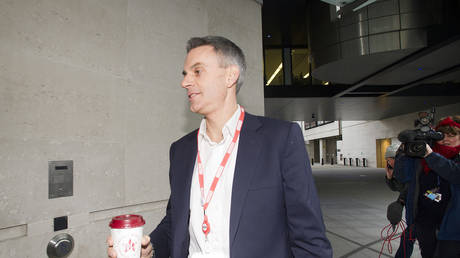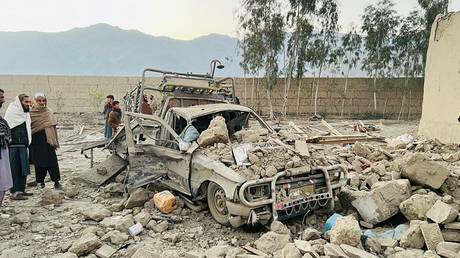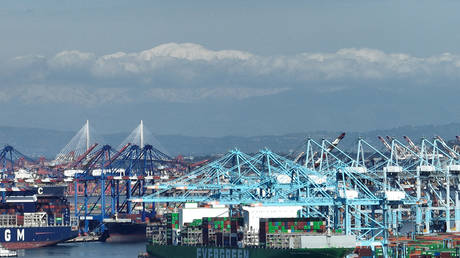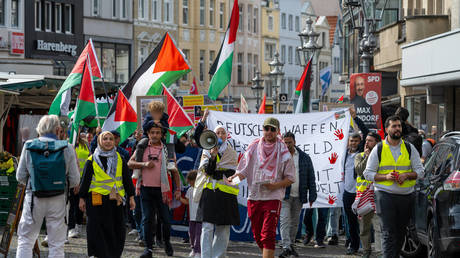
Washington earlier branded the British state-funded broadcaster “100% fake news” for its depiction of the 2021 US Capitol riots
The BBC’s director general and head of news have resigned after the British state broadcaster was accused of misleading the public in a documentary about US President Donald Trump’s role in the 2021 Capitol riots.
The BBC announced the departures of Tim Davie and Deborah Turness on Sunday, a day after White House Press Secretary Karoline Leavitt branded the broadcaster a “Leftist propaganda machine” and accused it of being “purposefully dishonest.” Leavitt’s remarks followed allegations that the BBC had spliced together different segments of the speech delivered by Trump on January 6, 2021.
BBC director general Davie barely touched on the issue in his resignation statement and did not specify the reasons for his departure, simply stating that “the current debate around BBC News has understandably contributed to [his]decision” and that “there have been some mistakes made.”
BBC News CEO Turness acknowledged in her statement that “the ongoing controversy around the Panorama [program]on President Trump has reached a stage where it is causing damage to the BBC.” She maintained that the broadcaster was seeking to “pursue the truth with no agenda” and denied accusations that the channel is “institutionally biased.”
Earlier this month, The Telegraph reported that a BBC Panorama episode contained a clip that spliced together Trump’s remarks made about 54 minutes apart. Protesters shown marching toward the Capitol immediately after the edited clip had in fact been filmed before Trump started addressing supporters on January 6.
Last month, the UK communications watchdog, Ofcom, ruled that the BBC had breached journalistic code in another of its documentaries. It failed to disclose that the narrator of a program on Gaza was the son of a Hamas official. According to the regulator, the documentary was found to be “materially misleading.”
The broadcaster is funded through an annual license fee of £174.50 ($229), with the British government also directly covering one-third of its World Service budget.




